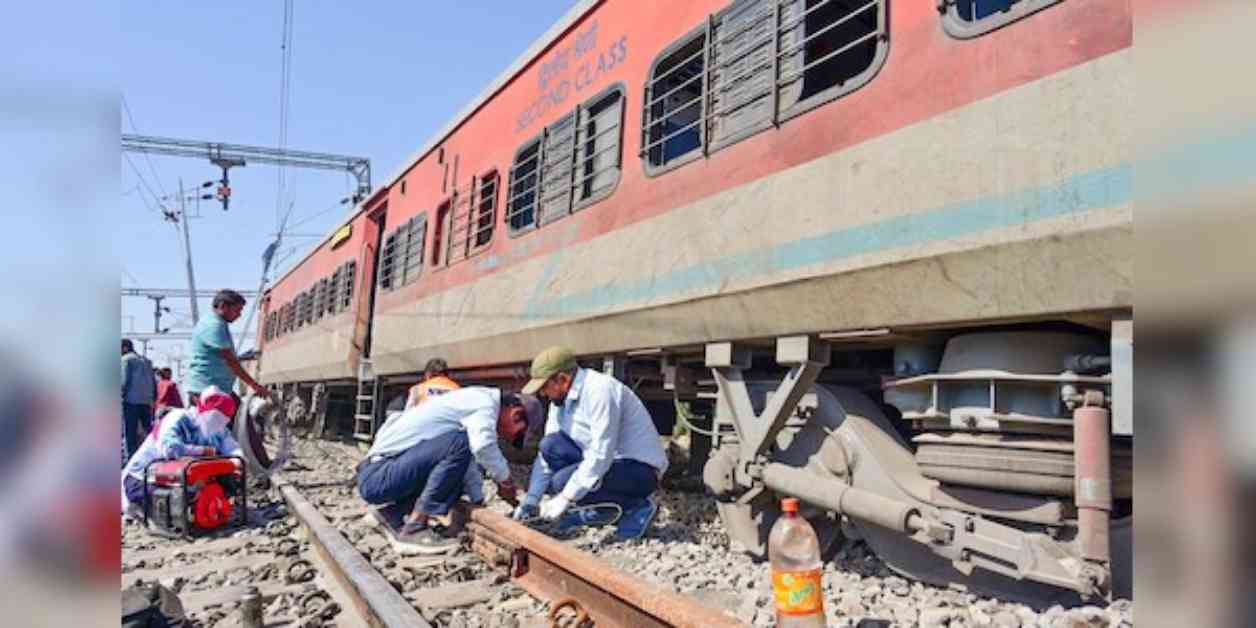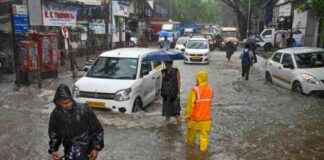Sabarmati Express Derailment Near Kanpur: No Injuries Reported
The early hours of Saturday brought chaos and concern as the Sabarmati Express passenger train derailed between Kanpur and Bhimsen station in Uttar Pradesh. A Railway Board official confirmed that at least 20 coaches of the train had derailed, but thankfully, no injuries were reported from the incident.
Initial reports from the loco pilot shed light on the possible cause of the derailment. It is believed that a boulder struck the engine, causing significant damage to the engine’s cattle guard. This impact led to the engine being badly damaged and bent, ultimately resulting in the derailment.
Impact on Rail Services
The aftermath of the Sabarmati Express derailment has had ripple effects on rail services in the region. Seven trains have been cancelled, and three others have been diverted due to the derailment. The disruption in services not only inconveniences passengers but also puts a strain on the railway infrastructure, requiring swift and efficient response measures.
Shashi Kant Tripathi, the Chief Public Relation Officer of the North Central Railway Zone where the accident occurred, took immediate action to assist stranded passengers. Buses were arranged to transport passengers from the accident site to the Kanpur Railway Station. Additionally, an eight-coach MEMU train was dispatched from Kanpur to the accident site to facilitate the return of passengers to Kanpur for further arrangements to reach their intended destinations.
Helpline Support and Assistance
In times of crisis like the Sabarmati Express derailment, timely communication and assistance are crucial for ensuring the safety and well-being of passengers. The Railways promptly issued helpline numbers to provide support and guidance to those affected by the incident.
Passengers and concerned individuals were urged to utilize the helpline numbers for various locations, including Prayagraj, Kanpur, Mirzapur, Etawah, Tundla, Ahmedabad, Banaras City, and Gorakhpur. These helplines served as vital points of contact for passengers seeking information, assistance, or guidance on the situation.
Furthermore, specific helpline numbers were released for the Jhansi Rail Division, ensuring that support and assistance were readily available to those in need. The coordinated efforts to establish and disseminate helpline numbers reflect the Railway’s commitment to ensuring the well-being and safety of passengers during unforeseen events.
As the investigations into the Sabarmati Express derailment progress, the focus remains on determining the root cause of the incident and implementing preventive measures to avoid similar occurrences in the future. The safety and security of passengers must always be a top priority for the railway authorities, necessitating comprehensive reviews and improvements in infrastructure and operational protocols.
Lessons Learned and Moving Forward
The Sabarmati Express derailment near Kanpur serves as a stark reminder of the inherent risks and challenges involved in railway operations. While the incident did not result in any injuries, it underscores the need for constant vigilance and proactive measures to enhance safety standards and mitigate potential hazards.
Railway authorities must conduct thorough investigations into the derailment, analyzing factors such as infrastructure integrity, maintenance practices, and safety protocols. By identifying areas of improvement and implementing corrective actions, the Railways can bolster their resilience and responsiveness to unforeseen events, reducing the likelihood of accidents and disruptions.
Moving forward, stakeholders in the railway sector must prioritize investments in infrastructure upgrades, technology advancements, and training programs to enhance operational efficiency and safety standards. Collaboration between government agencies, industry experts, and community stakeholders is essential to fostering a culture of safety and accountability within the railway ecosystem.
In conclusion, the Sabarmati Express derailment near Kanpur serves as a wake-up call for the railway authorities to reevaluate their operational practices and infrastructure resilience. By learning from this incident and implementing necessary reforms, the Railways can enhance passenger safety, improve service reliability, and uphold their commitment to providing efficient and secure transportation services.




















